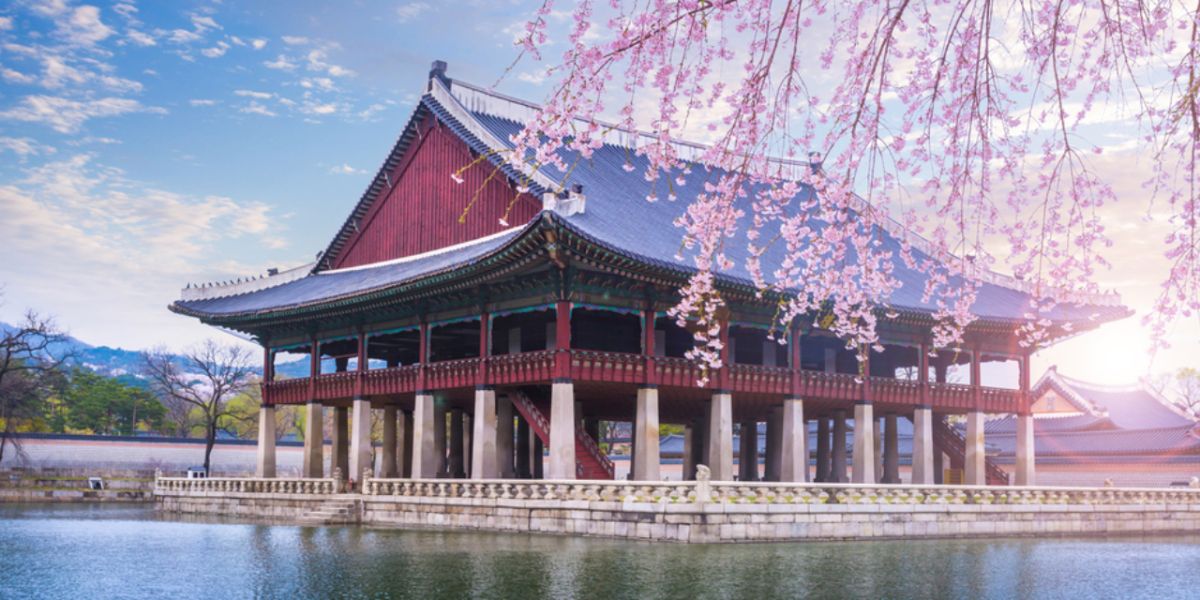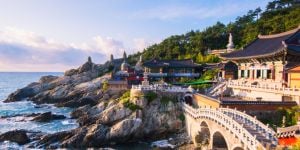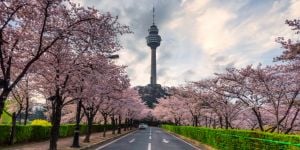
When you are living in South Korea, you can enjoy a wide range of leisure activities in your free time. There are various ways to discover South Korea's landscape, history, and culture. For example, many hike in the mountains, visit beautiful beaches along the long coast, travel to historical attractions or visit an amusement park.
Historical sites and attractions
Every year, millions of people visit South Korea. One of the reasons why so many tourists visit South Korea is to explore the country's historical, cultural, and religious sites. There are various historical monuments listed as World Heritage by the UNESCO, including forts, monasteries, ancient palaces, and temples. Some of the most famous include Gyeongbokgung Palace in Seoul, Bulguksa Temple, Seokguram in Gyeongju, and the traditional hanok village in Jeonju. All across the country, you can find historical sites and artefacts that bear witness to South Korea's long history and traditions.
Parks and nature reserves
Nature lovers can enjoy walks or hikes around Korea's many parks and nature reserves. Many people also rent bicycles to explore the country's mountainous landscape and abundant flora and fauna. South Korea has 22 national parks, 15 of which are located in mountainous regions. The Juwangsan National Park is well known for its pristine forests, gorges and valleys offering visitors an extraordinary panorama.
Songnisan National Park is also well known for its peaks, namely Cheonwangbong, Birobong and Munjangdae. Seoraksan National Park, located in the north of the country, is home to many endemic plant and animal species. Visitors can explore forests, waterfalls and other natural wonders in the surrounding areas. You can also follow the paths leading to the Jungsanri Cheongwangbong Peak, or the Gwimyeonam Rock.
Good to know:
Some parks have designated camping areas where you can spend the night safely.
Amusement parks
You will find many amusement parks and theme parks in South Korea, particularly around Seoul. You may want to visit the Children's Grand Park, which includes a huge playground for children of all ages, as well as a zoo. Dreamland, in the suburbs of Seoul, is an amusement park that features a large water park, a zoo, where you can play with the animals and feed them, as well as carousels and roller coasters.
Everland, one of South Korea's most famous theme parks, is located only a few kilometres away from Seoul. It consists of different areas, including Caribbean Bay, a large waterpark, and the Everland Speedway with specific attractions and restaurants. Lotte World in the southern part of Seoul is the world's largest indoor amusement park. The large building also features shopping malls, a sports centre, and leisure facilities including indoor golfing, skating, and large carousels.
Water activities
You can enjoy a variety of thrilling water activities all along South Korea's coastline. Here, visitors engage in various activities, such as surfing, kite-surfing, canoeing, kayaking, rafting, and windsurfing. You can even go scuba-diving in Jeju island and discover its rich marine life. Fishing is also very popular in South Korea and is practised all around the country's many lakes, rivers, and beaches. Tournaments and professional fishing leagues are regularly organised.
Skiing and climbing in South Korea
In winter, skiing and ice climbing are also popular activities for both tourists and South Korean citizens. There are various ski resorts across the country, with the most popular ones found in Gangwon-do Province. There are different slopes and peaks for all levels. The most popular locations are Mount Bukhan, Seoraksan and Bukhansan National Parks, and Towangsong waterfall.
Yongpyong, Muju, and Alpensia, are the best and largest ski areas in the country. They also have artificial snow machines should there be not enough snowfall.
Good to know:
The country will host the 2018 Winter Olympic Games in Pyeongchang, Gangwon-do Province.
We do our best to provide accurate and up to date information. However, if you have noticed any inaccuracies in this article, please let us know in the comments section below.








